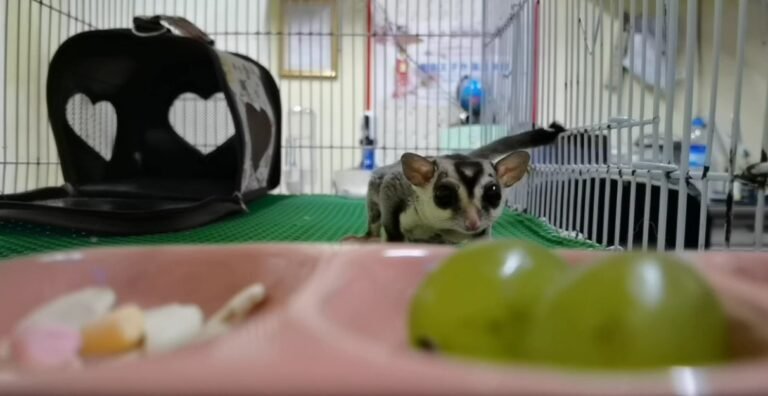Can Sugar Gliders Eat Corn
Can Sugar Gliders Eat Corn?
If you’re a sugar glider owner, you may often find yourself wondering what you can and cannot feed these adorable little creatures. One food item that often sparks curiosity is corn. After all, corn is a common ingredient in many pet foods, so can sugar gliders eat it too? The short answer is yes, sugar gliders can technically eat corn.
However, there are some important considerations to keep in mind before adding corn to your sugar glider’s diet.
Understanding the Sugar Glider’s Diet
To understand whether corn is a suitable food for sugar gliders, we first need to look at their natural diet. Sugar gliders are omnivores, which means they eat a variety of foods including fruits, vegetables, insects, nectar, and even small amounts of meat. In the wild, sugar gliders primarily feed on nectar and sap from various trees, as well as insects and small prey. Therefore, it’s important to replicate this diverse diet in captivity to ensure their nutritional needs are met.

The Nutritional Content of Corn
To determine whether corn is a suitable food for sugar gliders, it’s essential to examine its nutritional content. Corn is relatively low in protein and fat but high in carbohydrates. While sugar gliders do require carbohydrates in their diet, it’s crucial that they come from the right sources. In the wild, sugar gliders obtain their carbohydrates from fruits and nectar, which also provide them with essential vitamins and minerals. Corn, on the other hand, lacks many of these essential nutrients.
The Importance of Variety
While corn can technically be included in a sugar glider’s diet, it should not be the sole source of carbohydrates. Variety is key when it comes to providing a nutritionally balanced diet for sugar gliders. In addition to fruits and vegetables, it’s important to offer a wide range of foods to ensure they receive all the essential nutrients they need. Therefore, while corn can be included as an occasional treat, it should not make up a significant portion of their diet.
Potential Risks and Considerations
Although corn is generally safe for sugar gliders to consume, there are a few things to keep in mind. Firstly, corn should always be fed in moderation due to its high carbohydrate content. Too much corn can lead to weight gain and other health issues. Secondly, it’s important to choose organic, non-GMO corn if possible. Conventionally grown corn often contains pesticides and other harmful chemicals that can be detrimental to your pet’s health.
Other Suitable Alternatives
Given the potential risks and limitations of corn, it’s worth exploring other suitable alternatives to ensure your sugar glider’s nutritional needs are met. Some healthy carbohydrate options for sugar gliders include fruits like apples, berries, and melons, as well as vegetables such as carrots, sweet potatoes, and peas. These foods provide a wide range of essential vitamins, minerals, and antioxidants that are important for your pet’s overall health and well-being.
Frequently Asked Questions
1.Can sugar gliders eat canned corn?
While fresh corn is generally preferred over canned corn, sugar gliders can eat a small amount of canned corn as an occasional treat. However, it’s important to choose canned corn that does not contain any added salt or sugar.
2.Is corn safe for baby sugar gliders?
Just like adult sugar gliders, baby sugar gliders can consume corn in small amounts. However, it’s crucial to introduce solid foods gradually and monitor their response to ensure they tolerate corn well.
3.Can sugar gliders eat popcorn?
Popcorn should be avoided as a treat for sugar gliders. While they may be attracted to the smell and taste, the high salt and oil content in popcorn can be harmful to their health.
Final Thoughts
While sugar gliders can technically eat corn, it should only be offered as an occasional treat and not as a staple in their diet. The nutritional content of corn is not as rich as other fruits and vegetables, and a varied diet is essential for your pet’s health. Always prioritize fresh, organic, and non-GMO foods when feeding your sugar glider, and consult with a veterinarian for personalized dietary recommendations. By providing a diverse and well-balanced diet, you can ensure that your sugar glider remains healthy, happy, and thriving.







